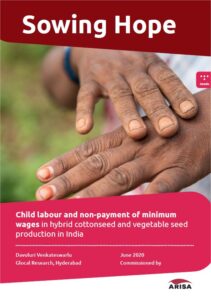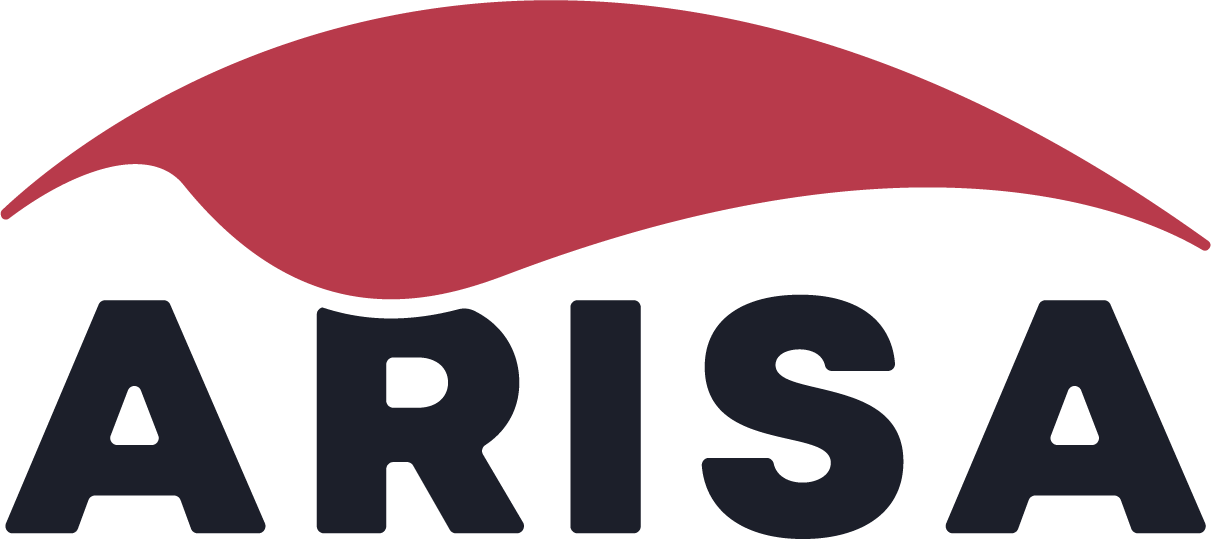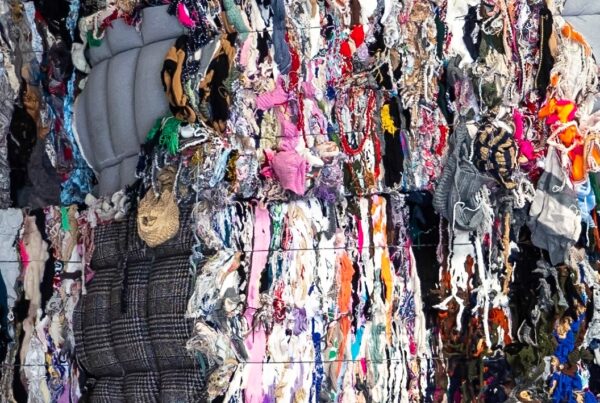 Persbericht Arisa
Persbericht Arisa
Utrecht, 11 juni 2020
In de aanloop naar 12 juni, de Internationale Dag tegen Kinderarbeid, publiceert Arisa een nieuw rapport met een hoopgevende boodschap. Het rapport “Sowing Hope” laat zien dat in de katoen- en groentezaadproductie in India de afgelopen vijf jaar belangrijke stappen zijn gezet om kinderarbeid tegen te gaan. Met name in de gebieden waar aanzienlijke interventies plaatsvonden, nam kinderarbeid af. Het aandeel werkende kinderen onder de 14 jaar op het totaal aantal arbeiders nam met 25% af op katoenzaadbedrijven en met 38% op groentezaadbedrijven.
Ondanks deze vooruitgang zijn er helaas nog steeds kinderen werkzaam in deze sector. Daarom roept Arisa zaadbedrijven, brancheverenigingen en overheden op zich verder in te spannen om kinderarbeid in de groente- en katoenzadenindustrie helemaal uit te bannen.
Het onderzoek vond plaats op 613 boerderijen in zes Indiase deelstaten waar groente- en katoenzaden worden geproduceerd voor internationale bedrijven als Advanta, Bayer, BASF, East-West Seed, Heinz Seeds, Limagrain, Sakata en Syngenta, waarvan sommigen met een kantoor in Nederland, als ook voor grote Indiase bedrijven als Bioseed, Kalash Seeds, Kaveri Seeds, Namdhari Seeds, Nuziveedu Seeds en Rasi Seeds. De gegevens over kinderarbeid voor individuele bedrijven laten een significant verschil zien tussen bedrijven die al substantiële maatregelen hebben genomen om het probleem van kinderarbeid aan te pakken en de bedrijven die nog moeten beginnen of bezig zijn deze uit te voeren.
Lonen onder het wettelijk minimum
Behalve kinderarbeid is in het onderzoek ook gekeken naar het betalen van minimumlonen. Hier is de situatie een stuk minder positief. In de afgelopen vijf jaar is het gat tussen betaald loon en minimumloon groter geworden. Vooral vrouwen worden onder het minimumloon betaald en worden daarnaast gediscrimineerd omdat zij andere werkzaamheden krijgen – waarvoor minder wordt betaald – dan mannen. In sommige Indiase staten werd in 2018-19 voor de arbeidsintensieve taak van kruisbestuiving 24-41% onder het minimumloon betaald.
Dr. Davuluri Venkateswarlu, die het onderzoek in opdracht van Arisa uitvoerde, legt uit: “Een aantal internationale zaadbedrijven zet stappen op het gebied van monitoring en capaciteitsopbouw van boeren en zogeheten seed organisers, maar nog niet voldoende. Een kritische blik op het eigen inkoopbeleid en meer gezamenlijke initiatieven om de lonen te verhogen zijn nodig om dit probleem te adresseren.”
Verantwoordelijkheid internationale bedrijven
Bedrijven hebben de verantwoordelijkheid om daar waar ze actief zijn mensenrechten te respecteren. Dit betekent dat zij geen kinderarbeid mogen tolereren en moeten zorgen dat arbeiders in hun productieketens in ieder geval het minimumloon ontvangen. Bedrijven moeten gepaste zorgvuldigheid (due diligence) toepassen in hun bedrijfsvoering en ketens. Dit betekent dat zij de risico’s genoemd in dit rapport van Arisa moeten aanpakken en voorkomen.
Arisa roept zaadbedrijven, brancheverenigingen, de Nederlandse en andere Europese overheden op om zich meer in te spannen voor het tegengaan van kinderarbeid en het betalen van tenminste minimumlonen, juist in tijden van de COVID-19 crisis die de meest kwetsbare groepen zwaar lijkt te treffen met het risico op een toename van kinderarbeid.
De volledige versie van het rapport is hier te downloaden: https://arisa.nl/wp-content/uploads/SowingHope.pdf.
Voor vragen:
Lizette Vosman
Programmamedewerker Mensenrechten & Bedrijfsleven
lv@arisa.nl



